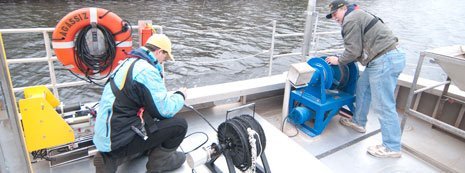Numerical and experimental study of internal curing effects on permeability of mortar samples
Document Type
Article
Publication Date
11-28-2018
Abstract
This study investigated the transport properties of cement mortar using microscale X-ray computed tomography (μCT) characterization techniques, the Permeability Solver computational program, and laboratory experiments. Lightweight aggregates (LWAs) were used as the internal curing agent in this study. Mortar samples with and without internal curing were prepared with a water-cement ratio of 0.45. The μCT techniques were applied to obtain digital data of the microstructure of the mortar samples at the resolution of 1 μm. The acquired images were processed to identify the pore structure. Three-dimensional (3D) digital pore structure samples were reconstructed, and the data were read by the Permeability Solver to analyze the porosity, pore conductivity, and permeability of the mortar mixtures. Pore connectivity was evaluated by the burning algorithm. Water transport was simulated by the finite-difference method combined with the compressibility relaxation algorithm. Darcy’s Law was then applied to calculate the permeability of the mixture. The transport properties of mortar with and without internal curing were simulated at 60 and 84 h. The results showed that the internally cured samples had lower permeability than the samples without internal curing. The permeability of the samples with internal curing decreased from 60 to 84 h. The results indicated that autogenous shrinkage cracks could be mitigated using internal curing.
Publication Title
Journal of Engineering Mechanics
Recommended Citation
Si, R.,
Dai, Q.,
&
Sun, X.
(2018).
Numerical and experimental study of internal curing effects on permeability of mortar samples.
Journal of Engineering Mechanics,
145(2).
http://doi.org/10.1061/(ASCE)EM.1943-7889.0001561
Retrieved from: https://digitalcommons.mtu.edu/cee-fp/58


Publisher's Statement
© 2018 American Society of Civil Engineers. Publisher's version of record: https://doi.org/10.1061/(ASCE)EM.1943-7889.0001561